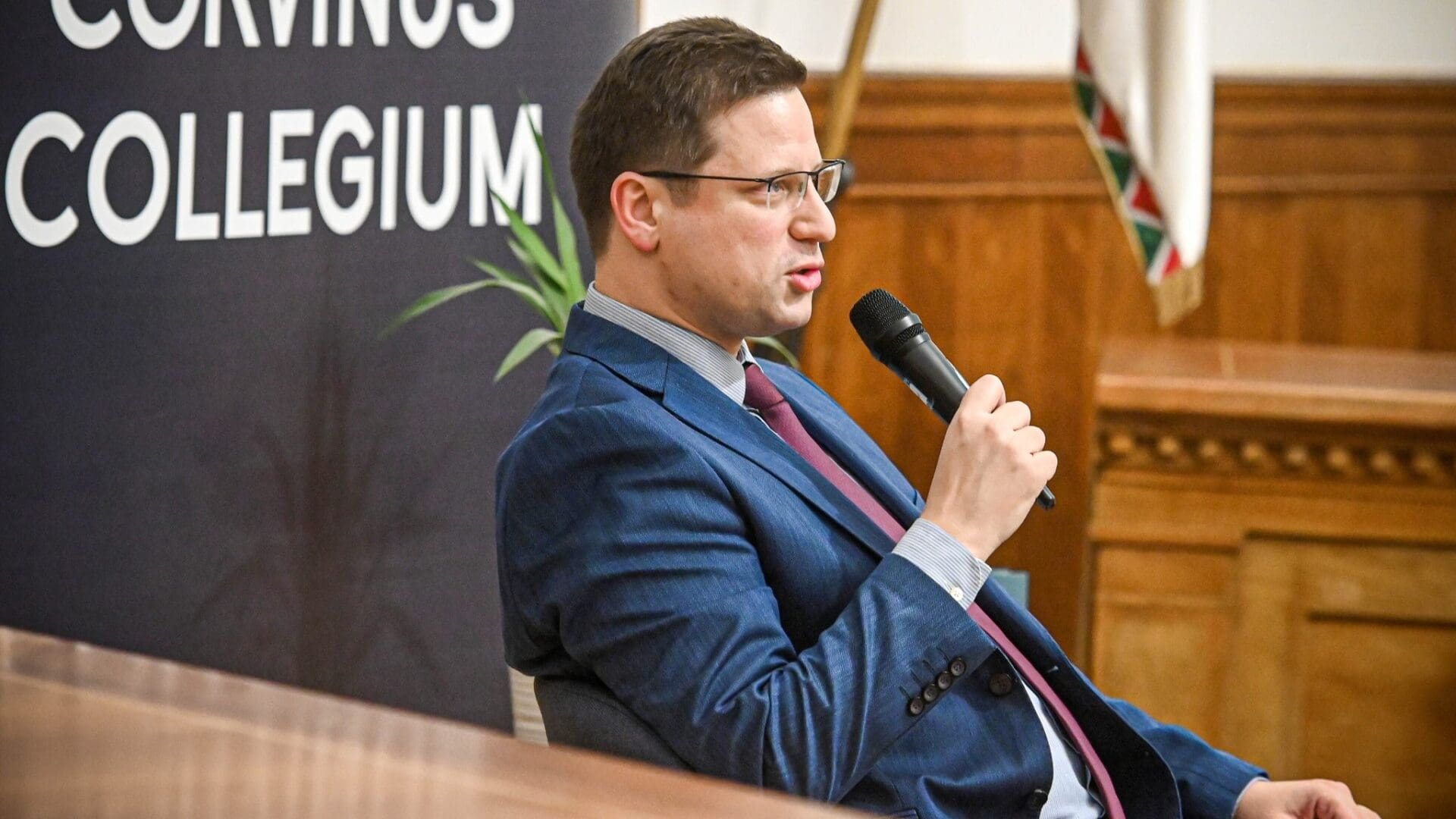‘More MCC centres are needed in Hungary and the Carpathian Basin,’ said Gergely Gulyás, the minister leading the Prime Minister’s Office at a recent Mathias Corvinus Collegium (MCC) event in Szekszárd. Mathias Corvinus Collegium has a Centre in the Western Hungarian town, running a Young Talents programme for schoolchildren aged 10-14.
Stressing the importance of education, Gulyás emphasised the need for significant raises in teacher salaries and noted that this could happen by the end of March if the European Union stops withholding EU funds.
The minister also confirmed that if EU funds are available, there is a good chance that the suspended developments in the Modern Cities programme will continue, and new ones will start.
Importance of the Common Market
At the conference organised by the Mathias Corvinus Collegium Gergely Gulyás stated that Hungary’s dependence on the EU is not due to its 1.4 per cent contribution to the Hungarian GDP, but rather because Hungary is part of a unified Europe and of the Schengen area, and the common market is essential for Hungary’s economy. He also emphasised the importance of cooperation among European countries in the global economic competition and mentioned that the country’s goal is to obtain all EU funds.
V4 Cooperation Set to Improve
When asked about the cooperation among the V4 countries, he explained Hungary’s disagreement with Poland over whether Russia constitutes a threat to NATO member states. Responding to a question, Gulyás remarked that the cooperation with the Poles within the European Union is good, but ‘less than spectacular.’ If it depended on the Poles, they would participate with all their might in the conflict, whereas the Hungarian government is trying to stay out of the conflict. The minister also highlighted the upcoming elections in Slovakia and Poland as factors that will affect V4 cooperation. ‘The situation is not as good as it was a few years ago, but once the elections in the two countries are over and the war ends, cooperation of the V4 may improve automatically,’ he said.
No to Nuclear Sanctions
He reiterated the Hungarian government’s stance that nuclear sanctions against Russia would be detrimental and therefore Hungary opposes them. In response to a question about the construction of Paks2, he stated that if construction starts next year, the nuclear power plant can realistically begin operating around 2032. He reminded that there are also US and German companies among the participants in the Paks expansion project, and they have not said they wanted to withdraw.
EU Funding: Important But Not Essential
In terms of the EU, he said ‘European countries would participate in the global economic competition with worse chances without cooperation.’ At the same time, he noted that the country would manage without European Union funds for a long time, so it’s a mistake to think that the country’s prosperity depends on them, ‘but our goal is to get all EU funding we are entitled to.’
Dependence on Russian Energy Still an Issue
In response to another question, he said that the rise in energy prices affects everything and Hungary’s dependence on energy is significantly greater than most countries in Europe. 85 per cent of the natural gas the country uses is still obtained from Russia and the proportion of oil is not much better. The price of Russian gas and oil is at world market level, which is sky high, so inflation is higher as well, he added. The minister mentioned the weakening of the forint as one of the causes of inflation, adding that it ‘has been partially reversed.’








